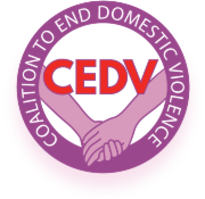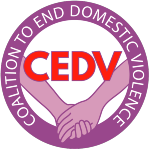PRESS RELEASE
Contact: Rebecca Stewart
Telephone: 513-479-3335
Email: info@EndToDV.org
Violence Against Women Act: Forty-Four Organizations Representing Millions of Americans, Along with Leading Professors and Lawyers, Call for Major Reforms to Federal Law
Washington DC / March 20, 2018 – Today the Coalition to End Domestic Violence (CEDV) is releasing two historic statements calling for major reforms to the federal Violence Against Women Act (VAWA). The first Statement, endorsed by 44 leading organizations, urges lawmakers to “ensure the values of family preservation, limited government, and due process will no longer be under assault” from VAWA-funded programs and policies (1).
The Statement also calls on Senate Judiciary chairman Chuck Grassley to involve CEDV representatives as full and frequent participants in the drafting of the upcoming VAWA reauthorization bill.
The second document, signed by 76 professors and attorneys across the country, takes the organizations’ Statement a step further by detailing a series of 14 Principles for VAWA Reform. The Principles address the areas of Counseling and Treatment Services, Legal Response, and General Issues (2).
The Coalition to End Domestic Violence represents millions of American voters. The Coalition consists of a diverse membership that is working to address a broad range of concerns such family preservation, constitutional protections, women’s issues, minority rights, immigration fraud, military readiness, and other issues.
At present, a “power and control” ideology permeates domestic violence programs. But research shows a wide range of risk factors, including substance abuse, mental illness, and marital discord contribute to the problem of intimate partner aggression (3). Ironically, VAWA does not devote any funds to solving these three problems.
CEDV desires that the federal Violence Against Women Act, as well as state domestic violence laws, enhance rather than detract from six key values: Attention to the underlying causes of abuse, family preservation, responsiveness to victims, due process, reducing over-criminalization, and accountability to the public and lawmakers.
The Violence Against Women Act was first passed in 1994. A recent “Listening Tour” revealed widespread support among congressional staffers for major reforms to VAWA (4).
Citations:
- https://endtodv.org/statements/organizations/
- https://endtodv.org/statements/opinion-leaders/
- https://www.cdc.gov/violenceprevention/intimatepartnerviolence/riskprotectivefactors.html
- http://www.saveservices.org/dv/vawa-listening-tour/
The Coalition to End Domestic Violence is working to address underlying causes of domestic violence, promote family preservation, and ensure due process: www.EndToDV.org


